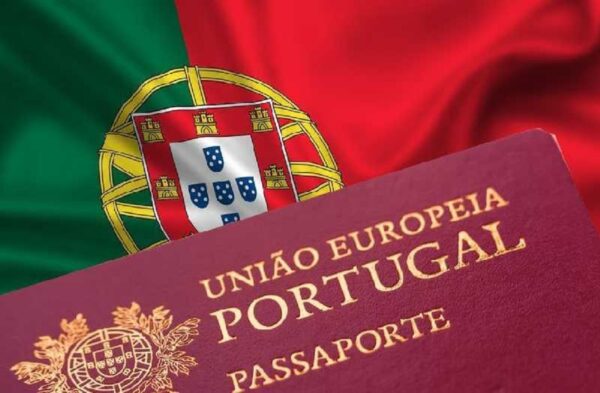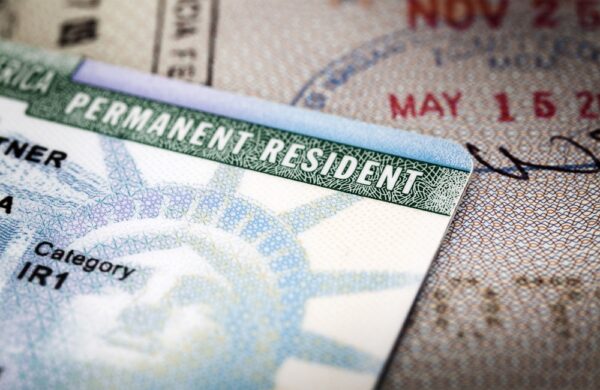Portugal is a Southern European country that offers an appealing mix of culture, safety, and economic stability. This is especially attractive to prospective immigrants who may want to acquire the Portugal Permanent Residency and other visa options. Its scenic coastlines and warm climate also make it an excellent place to live, work, or retire. If you’ve already entered Portugal on a work visa, student visa, or other residency pathways, you may want to take the next step toward securing permanent residency.
Over the years, the Portuguese government has introduced several immigrant-friendly residency and visa options. These options, such as the Golden Visa and D7 Visa, have opened doors for investors, professionals, and retirees eager to settle in the country long-term. These programs are designed to help foreigners integrate seamlessly while enjoying the benefits of residency. Below, we will explain in detail the basic knowledge of Portugal permanent residency, including benefits, requirements, and how to apply for it.

What is Portugal PR?
Portugal permanent residency is a legal document that grants foreign nationals the right to live and work in the country indefinitely. It eliminates the hassles of visa renewals and ensures stability for foreign workers and their families. It is typically granted after five years of continuous legal residence in the country. Applicants must demonstrate compliance with residency rules even to have a slender hope of qualifying. With the number of foreigners vying for residency, the document and its process have become competitive.
Why Portugal Permanent Residency?
Owning and renewing Portugal's permanent residency has several benefits attached to it. Broadly, with this status, you can enjoy full access to healthcare, education, and the ability to work or start a business. However, there are even more benefits to having a Portugal permanent residency:
Cultural Integration and Lifestyle
Being a permanent resident in Portugal means immersing yourself in a rich cultural heritage and world-renowned quality of life. Portugal’s relaxed pace of living, Mediterranean cuisine, and vibrant social culture provide a unique experience for residents. Permanent residency here also allows you to engage more deeply with local traditions, festivals, and communities. You equally gain the freedom to live in any part of Portugal. Cities differ from the bustling hubs of Lisbon and Porto to the serene Algarve region.
Access to European Union Mobility
Another standout benefit of Portugal's permanent residency is seamless mobility across the European Union. With permanent resident status, you can travel visa-free within the Schengen Area, which covers 27 EU countries. This opens doors for personal travel, work collaborations, and many business expansion opportunities. It’s particularly advantageous for professionals seeking to network and grow internationally. Unlike citizenship, permanent residency also allows you to enjoy these benefits without renouncing your original nationality.
Favorable Tax Policies
Friendly tax policies offer significant advantages to its Portuguese residents. This favorability is accentuated with income programs like the Non-Habitual Resident (NHR) scheme. This program provides tax exemptions or reduced rates on certain income streams for up to ten years. Additionally, there is no wealth tax, and its inheritance taxes are minimal. The NHR scheme is particularly appealing to retirees, digital nomads, and professionals earning overseas income.
Eligibility for Healthcare and Education
Permanent residency in Portugal grants you and your family access to the country’s excellent public healthcare and education systems. Residents can benefit from affordable, high-quality medical services in hospitals and clinics nationwide. Children of permanent residents can also attend public schools and universities under the same conditions as Portuguese nationals. This accessibility provides financial relief while ensuring access to some of Europe’s best educational institutions.
Types of Portugal Permanent Residency
1. Golden Visa Residency
Portugal’s Golden Visa program is a premier route to permanent residency designed to attract foreign investors. To qualify, you must make minimum investment options that are stipulated by the Portuguese immigration service. Alternatively, transferring a similar amount to a Portuguese bank or approved financial institution is another viable option. Real estate investments in areas undergoing urban renewal are especially encouraged, with reduced thresholds to promote sustainable development.
The program initially provides a renewable two-year residence permit and grants access to the Schengen Area. After five years of holding the permit, you can apply for permanent residency or even citizenship. You must maintain this type of investment during this period and demonstrate compliance with tax and legal obligations. Additionally, investors must spend at least seven days in Portugal annually to fulfill residency requirements.
2. D7 Visa Residency
The D7 Visa, also known as the Passive Income Visa, is a popular choice for non-EU national retirees with steady income sources outside Portugal. Single applicants must demonstrate a stable monthly income, which increases based on dependents: typically, 50% of the base amount per spouse and 30% per child. This income can stem from pensions, rental income, dividends, or other passive sources.
The D7 initially grants a temporary residency permit valid for two years, renewable for three more years. This is all before permanent residency for immigrants can be sought. Applicants must live in Portugal for at least 183 days per year or demonstrate a permanent connection to the country. Health insurance valid in Portugal is mandatory, as is a clean criminal record. This program is especially attractive due to Portugal’s non-habitual resident (NHR) tax regime.
3. Highly Qualified Professionals Residency
Portugal offers a specialized pathway for skilled professionals in fields such as technology, healthcare, engineering, and scientific research. Advanced qualifications, such as master’s degrees, certifications, or substantial experience, are often required. Temporary residency permits issued under this category can lead to permanent residency after five years of uninterrupted legal residence.
Professionals are also required to register with Portugal’s tax authority and social security system. Key benefits of this pathway include access to family reunification, which allows dependents to join and reside in Portugal. Additionally, professionals benefit from Portugal’s progressive labor laws, which ensure competitive salaries and worker protections. For those contributing to high-demand sectors, this residency route offers not just career growth but a path to long-term stability.
4. Retiree Residency
Retirees seeking to enjoy their golden years in Portugal can take advantage of the country’s residency programs. Applicants must show proof of a stable income source, such as pensions or investments. This threshold increases for spouses and dependents but remains accessible compared to other EU countries. Health insurance for retirees in Portugal is non-negotiable, ensuring they can access the country’s world-class healthcare system.
Once the residency is officially granted, the initial permit lasts two years and is renewable for three more. After this, retirees may apply for permanent residency. Residency allows retirees to enjoy a peaceful lifestyle with access to rich cultural experiences, diverse cuisine, and top-tier leisure facilities. Unlike other pathways, retirees are not required to work or invest. This residency option is straightforward for those prioritizing relaxation and quality of life.
5. Citizenship Through Naturalization
Permanent residency is often a stepping stone to full Portuguese citizenship. This can also be attained through naturalization after five years of legal residence. To qualify, applicants must meet several criteria and proof of integration on the part of the applicant. The integration can be demonstrated through activities like local community involvement, tax compliance, and stable residency ties.
Portugal allows dual citizenship, meaning applicants can retain their country of origin unless otherwise restricted. Naturalization offers Portuguese citizens the right to vote, access to EU privileges, and greater political participation. However, citizenship is not mandatory for those satisfied with the rights provided by permanent residency. The application process for naturalization involves submitting comprehensive documentation to the Serviço de Estrangeiros e Fronteiras (SEF).
Eligibility Criteria For Portugal Permanent Residency
Portugal’s permanent residency is designed for individuals who meet specific qualifications under different pathways, including long-term residents, investors, retirees, and skilled professionals. Below are the detailed criteria based on each category:
Long-Term Residents
- Applicants must have legally resided in Portugal for at least five consecutive years under a temporary residence permit.
- Must have maintained compliance with all residency requirements, such as minimum stay periods and renewal obligations.
- A clean criminal record from both Portugal and the applicant’s home country.
- Proof of sufficient financial means to support oneself and any dependents.
- Knowledge of basic Portuguese, proven by passing the A2 language test, is also required.
Investors
- A minimum investment of €280,000 in qualifying real estate in low-density areas or €500,000 in urban regions.
- An alternative capital transfer of €1.5 million or creating at least ten local jobs through a business venture.
- Investments must be maintained for at least five years.
- A valid passport and proof of investment, such as property deeds or business registration.
- Police clearance and compliance with all tax obligations in Portugal.
Retirees
- Applicants must demonstrate passive income, such as pensions or rental earnings, of at least €760 per month or more for a single applicant.
- Proof of stable accommodation in Portugal, such as a rental agreement or property ownership.
- A comprehensive health insurance plan that is valid in Portugal.
- Must show a strong intention to reside in Portugal by meeting stay requirements (at least 183 days annually)
Professionals
- Must hold advanced qualifications or certifications in fields like technology, healthcare, or engineering.
- Evidence of employment or a job offer in Portuguese national territory with a local employer.
- Professionals with expertise contributing to Portugal’s development are prioritized.
- Ability to integrate culturally and linguistically through basic Portuguese knowledge.
Documents Required for Portugal Permanent Residency Application
- Valid passport
- Completed application form
- Passport-sized photographs meeting biometric standards
- Proof of income or investment (bank statements, property deeds, or employment contracts)
- Clean criminal record certificates from Portugal and home country
- Evidence of accommodation (rental agreement or property title)
- Portuguese language certificate (if applicable)
How to Apply for Portugal Permanent Residency
Applying for permanent residency in Portugal involves several steps, which can take months, depending on your chosen pathway and individual circumstances. Now that you know the different ways of getting a permanent residency in Portugal, let’s see how to apply.
Confirm Your Eligibility
Determine the most suitable residency pathway for you, whether through the Golden Visa, D7 Visa, or another program. Ensure you meet the specific requirements for your chosen route, such as investment thresholds for the Golden Visa or income requirements. If you are uncertain, consider consulting an immigration lawyer or an accredited visa consultancy to ensure compliance with Portuguese immigration laws.
Gather Required Documents
Prepare all necessary documentation, which typically includes a valid passport, proof of income or investment, a criminal background check, proof of accommodation in Portugal, and a comprehensive health insurance policy valid in the country. Additional documents, such as business registration certificates or academic credentials, may also be required, depending on your residency.
Submit Your Application
Complete your application and submit it through the Serviço de Estrangeiros e Fronteiras (SEF) portal. This is Portugal’s immigration authority. For those applying outside of Portugal, the application can be initiated at the Portuguese consulate in your home country. Pay the requisite application fees, which vary depending on the residency type. Ensure all forms are filled accurately to avoid delays or rejections.
Attend a Biometric Appointment
Once your application is submitted, you will be required to attend a biometric appointment at an SEF office. This involves fingerprinting, a photograph, and verification of your original documents. The SEF will notify you of the appointment date and location.
Await Review and Approval
The SEF will review your application to verify compliance with Portugal’s residency requirements. This process may take several weeks to months. During this time, you may be contacted for additional information or documents if needed.
Receive Your Residency Permit
Once approved, you will be issued a temporary residency permit valid for two years. This permit is renewable and, after five years, leads to permanent residence permits. Permanent residents in Portugal enjoy stability, access to public services, and the option to apply for citizenship.
Portugal Permanent Residency Application Process Fees
Applying for Portugal’s Permanent Residency (PR) involves a series of fees that depend on the type of residency pathway and services required. The initial application fee typically ranges between €90 and €120 and covers document review and preliminary processing. For applicants under the Golden Visa program, additional costs include government processing fees starting at €533 for the primary applicant and €83 for each dependent.
Once your application is approved, you will need to pay to have your residency card issued. The standard issuance fee is approximately €37 for each card, but Golden Visa applicants face higher charges, often exceeding €5,000 for the initial residency card and subsequent renewals.
















